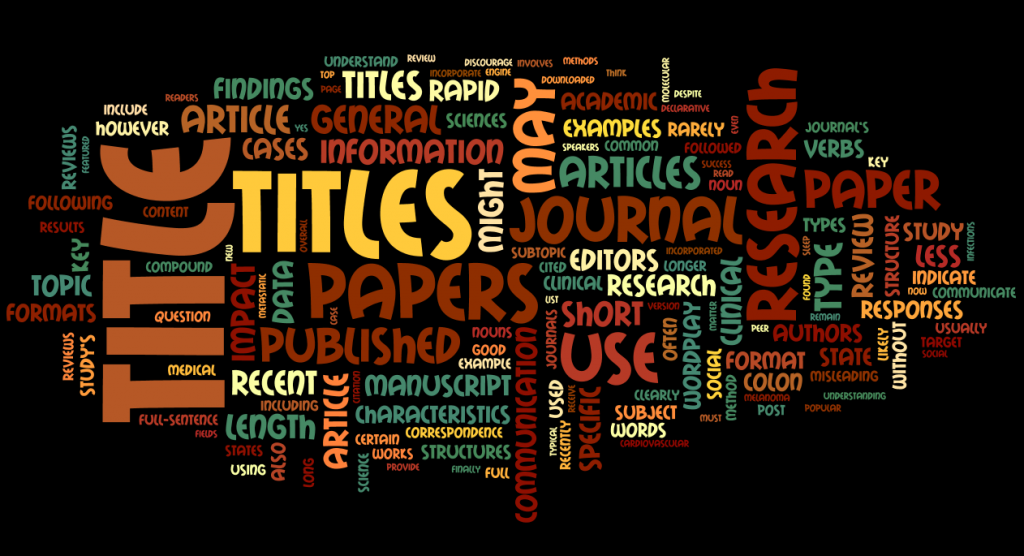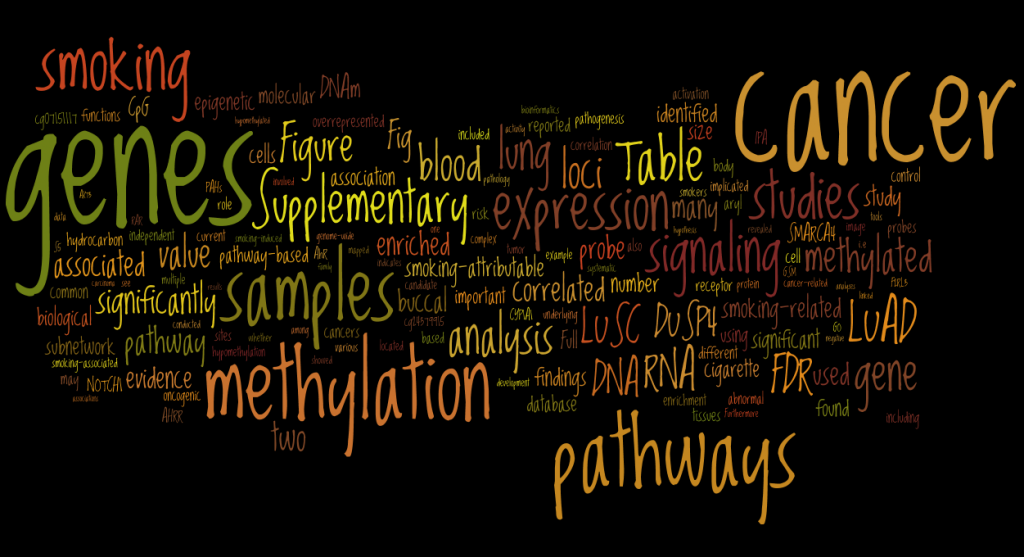

50 Verbs of Analysis for English Academic Essays

Note: this list is for advanced English learners (CEFR level B2 or above). All definitions are from the Cambridge Dictionary online .
Definition: to have an influence on someone or something, or to cause a change in someone or something.
Example: Experts agree that coffee affects the body in ways we have not yet studied.
Definition: to increase the size or effect of something.
Example: It has been shown that this drug amplifies the side effects that were experienced by patients in previous trials.
Definition: to say that something is certainly true .
Example: Smith asserts that his findings are valid, despite criticism by colleagues.
Characterizes
Definition: Something that characterizes another thing is typical of it.
Example: His early paintings are characterized by a distinctive pattern of blue and yellow.
Definition: to say that something is true or is a fact , although you cannot prove it and other people might not believe it.
Example: Smith claims that the study is the first of its kind, and very different from the 2015 study he conducted.
Definition: to make something clear or easier to understand by giving more details or a simpler explanation .
Example: The professor clarified her statement with a later, more detailed, statement.
Definition: t o collect information from different places and arrange it in a book , report , or list .
Example: After compiling the data, the scientists authored a ten-page paper on their study and its findings.
Definition: to judge or decide something after thinking carefully about it.
Example: Doctor Jensen concluded that the drug wasn’t working, so he switched his patient to a new medicine.
Definition: to prove that a belief or an opinion that was previously not completely certain is true .
Example: This new data confirms the hypothesis many researchers had.
Definition: to join or be joined with something else .
Example: By including the criticisms of two researchers, Smith connects two seemingly different theories and illustrates a trend with writers of the Romanticism period.

Differentiates
Definition: to show or find the difference between things that are compared .
Example: Smith differentiates between the two theories in paragraph 4 of the second part of the study.
Definition: to reduce or be reduced in s i ze or importance .
Example: The new findings do not diminish the findings of previous research; rather, it builds on it to present a more complicated theory about the effects of global warming.
Definition: to cause people to stop respecting someone or believing in an idea or person .
Example: The details about the improper research done by the institution discredits the institution’s newest research.
Definition: to show.
Example: Smith’s findings display the effects of global warming that have not yet been considered by other scientists.
Definition: to prove that something is not true .
Example: Scientists hope that this new research will disprove the myth that vaccines are harmful to children.
Distinguishes
Definition: to notice or understand the difference between two things, or to make one person or thing seem different from another.
Example: Our study seems similar to another one by Duke University: how can we distinguish ourselves and our research from this study?
Definition: to add more information to or explain something that you have said.
Example: In this new paper, Smith elaborates on theories she discussed in her 2012 book.
Definition: to represent a quality or an idea exactly .
Example: Shakespeare embodies English theater, but few can understand the antiquated (old) form of English that is used in the plays.
Definition: to copy something achieved by someone else and try to do it as well as they have.
Example: Although the study emulates some of the scientific methods used in previous research, it also offers some inventive new research methods.
Definition: to improve the quality , amount , or strength of something.
Example: The pharmaceutical company is looking for ways to enhance the effectiveness of its current drug for depression.

Definition: to make something necessary , or to involve something.
Example: The scientist’s study entails several different stages, which are detailed in the report.
Definition: to consider one thing to be the same as or equal to another thing.
Example: Findings from both studies equate; therefore, we can conclude that they are both accurate.
Establishes
Definition: to discover or get proof of something.
Example: The award establishes the main causes of global warming.
Definition: to make someone remember something or feel an emotion .
Example: The artist’s painting evokes the work of some of the painters from the early 1800s.
Definition: to show something.
Example: Some of the research study participants exhibit similar symptoms while taking the medicine.
Facilitates
Definition: to make something possible or easier .
Example: The equipment that facilitates the study is expensive and of high-quality.
Definition: the main or central point of something, especially of attention or interest .
Example: The author focuses on World War II, which is an era she hasn’t written about before.
Foreshadows
Definition: to act as a warning or sign of a future event .
Example: The sick bird at the beginning of the novel foreshadows the illness the main character develops later in the book.
Definition: to develop all the details of a plan for doing something.
Example: Two teams of scientists formulated the research methods for the study.
Definition: to cause something to exist .
Example: The study’s findings have generated many questions about this new species of frog in South America.

Definition: to attract attention to or emphasize something important .
Example: The author, Dr. Smith, highlights the need for further studies on the possible causes of cancer among farm workers.
Definition: to recognize a problem , need, fact , etc. and to show that it exists .
Example: Through this study, scientists were able to identify three of the main factors causing global warming.
Illustrates
Definition: to show the meaning or truth of something more clearly , especially by giving examples .
Example: Dr. Robin’s study illustrates the need for more research on the effects of this experimental drug.
Definition: to communicate an idea or feeling without saying it directly .
Example: The study implies that there are many outside factors (other than diet and exercise) which determine a person’s tendency to gain weight.
Incorporates
Definition: to include something as part of something larger .
Example: Dr. Smith incorporates research findings from 15 other studies in her well-researched paper.
Definition: to show, point , or make clear in another way.
Example: Overall, the study indicates that there is no real danger (other than a lack of sleep) to drinking three cups of coffee per day.
Definition: to form an opinion or guess that something is true because of the information that you have.
Example: From this study about a new medicine, we can infer that it will work similarly to other drugs that are currently being sold.
Definition: to tell someone about parti c ular facts .
Example: Dr. Smith informs the reader that there are some issues with this study: the oddly rainy weather in 2017 made it difficult for them to record the movements of the birds they were studying.
Definition: to suggest , without being direct , that something unpleasant is true .
Example: In addition to the reported conclusions, the study insinuates that there are many hidden dangers to driving while texting.
Definition: to combine two or more things in order to become more effective .
Example: The study about the popularity of social media integrates Facebook and Instagram hashtag use.

Definition: to not have or not have enough of something that is needed or wanted .
Example: What the study lacks, I believe, is a clear outline of the future research that is needed.
Legitimizes
Definition: to make something legal or acceptable .
Example: Although the study legitimizes the existence of global warming, some will continue to think it is a hoax.
Definition: to make a problem bigger or more important .
Example: In conclusion, the scientists determined that the new pharmaceutical actually magnifies some of the symptoms of anxiety.
Definition: something that a copy can be based on because it is an extremely good example of its type .
Example: The study models a similar one from 1973, which needed to be redone with modern equipment.
Definition: to cause something to have no effect .
Example: This negates previous findings that say that sulphur in wine gives people headaches.
Definition: to not give enough c a re or attention to people or things that are your responsibility .
Example: The study neglects to mention another study in 2015 that had very different findings.
Definition: to make something difficult to discover and understand .
Example: The problems with the equipment obscures the study.
Definition: a description of the main facts about something.
Example: Before describing the research methods, the researchers outline the need for a study on the effects of anti-anxiety medication on children.
Definition: to fail to notice or consider something or someone.
Example: I personally feel that the study overlooks something very important: the participants might have answered some of the questions incorrectly.
Definition: to happen at the same time as something else , or be similar or equal to something else .
Example: Although the study parallels the procedures of a 2010 study, it has very different findings.
Converse International School of Languages offers an English for Academic Purposes course for students interested in improving their academic English skills. Students may take this course, which is offered in the afternoon for 12 weeks, at both CISL San Diego and CISL San Francisco . EAP course graduates can go on to CISL’s Aca demic Year Abroad program, where students attend one semester at a California Community College. Through CISL’s University Pathway program, EAP graduates may also attend college or university at one of CISL’s Pathway Partners. See the list of 25+ partners on the CISL website . Contact CISL for more information.
- Current Students
- News & Press
- Exam Technique for In-Person Exams
- Revising for 24 Hour Take Home Exams
- Before the 24 Hour Take Home Exam
- Exam Technique for 24 Hour Take Home Exams
- Structuring a Literature Review
- Writing Coursework under Time Constraints
- Reflective Writing
- Writing a Synopsis
- Structuring a Science Report
- Presentations
- How the University works out your degree award
- Accessing your assignment feedback via Canvas
- Inspera Digital Exams
- Writing Introductions and Conclusions
Paragraphing
- Reporting Verbs
Signposting
- Proofreading
- Working with a Proofreader
- Writing Concisely
- The 1-Hour Writing Challenge
- Editing strategies
- Apostrophes
- Semi-colons
- Run-on sentences
- How to Improve your Grammar (native English)
- How to Improve your Grammar (non-native English)
- Independent Learning for Online Study
- Reflective Practice
- Academic Reading
- Strategic Reading Framework
- Note-taking Strategies
- Note-taking in Lectures
- Making Notes from Reading
- Using Evidence to Support your Argument
- Integrating Scholarship
- Managing Time and Motivation
- Dealing with Procrastination
- How to Paraphrase
- Quote or Paraphrase?
- How to Quote
- Referencing
- Responsible and Ethical use of AI
- Acknowledging use of AI
- Numeracy, Maths & Statistics
- Library Search
- Search Techniques
- Keeping up to date
- Evaluating Information
- Managing Information
- Understanding Artificial Intelligence
- Getting started with prompts
- Thinking Critically about AI
- Using Information generated by AI
- SensusAccess
- Develop Your Digital Skills
- Digital Tools to Help You Study

Explore different ways of referring to literature and foregrounding your voice.
- Newcastle University
- Academic Skills Kit
- Academic Writing
Reporting verbs help you introduce the ideas or words of others as paraphrase or quotation from scholarly literature. Always accompanied by a reference, they indicate where you’re drawing on other people’s work to build your own argument. They also indicate your stance (agree, disagree, etc) on the scholarship you’re describing, highlighting your critical contribution. There are lots of reporting verbs to choose from and, depending on the context, they might be used to convey more than one stance, so you’ll notice that some appear in more than one category.
The following reporting verbs have been organised according to the critical stances they signal.

Neutral description of what the text says
Reporting verbs.
- Observes
- Describes
- Discusses
- Reports
- Outlines
- Remarks
- States
- Goes on to say that
- Quotes that
- Mentions
- Articulates
- Writes
- Relates
- Conveys
Abrams mentions that culture shock has “long been misunderstood as a primarily psychological phenomenon” (34)
Chakrabarty outlines the four stages of mitosis (72-3)
Acceptance as uncontested fact, having critiqued it
- Recognises
- Clarifies
- Acknowledges
- Concedes
- Accepts
- Refutes
- Uncovers
- Admits
- Demonstrates
- Highlights
- Illuminates
- Supports
- Concludes
- Elucidates
- Reveals
- Verifies
Abrams refutes the idea that culture shock is a “primarily psychological phenomenon” (34)
Chakrabarty demonstrates that mitosis actually occurs over five stages (73)
Recognition that this is one perspective on or interpretation of an issue or conclusion, and others might be possible
- Argues
- Reasons
- Maintains
- Contends
- Hypothesises
- Proposes
- Theorises
- Feels
- Considers
- Asserts
- Disputes
- Advocates
- Opines
- Thinks
- Implies
- Posits
Abrams contends that culture shock is socially produced (38)
Chakrabarty hypothesises that metaphase is a more complex process than previously thought (77)
Agreement with that perspective, interpretation or conclusion
- Shows
- Illustrates
- Points out
- Proves
- Finds
- Explains
- Agrees
- Confirms
- Identifies
- Evidences
- Attests
Abrams points out that culture shock is a “stress response mechanism” (34)
Chakrabarty proves that mitosis is irreversible, once triggered (80)
Disagreement with that perspective, interpretation or conclusion
- Believes
- Claims
- Justifies
- Insists
- Assumes
- Alleges
- Denies
- Speculates
- Disregards
- Supposes
- Conjectures
- Surmises
Abrams’ analysis disregards the neurochemical factors that contribute to culture shock (36)
Chakrabarty speculates that “metaphase is the most important stage of mitosis” (78)
Slight reservations held - probably true but being cautious
Reporting verb.
- Notes
- Suggests
- Challenges
- Critiques
- Emphasises
- Declares
- Indicates
- Comments
- Upholds
Abrams asserts that theories of culture shock have moved away from psychological explanations.
Chakrabarty emphasises the role of metaphase within mitosis (78)
Download this guide as a PDF
Explore different ways of referring to literature and foregrounding your voice. **PDF Download**
More in this section
Find out how to structure an academic paragraph.
Explore different ways of guiding the reader through your assignment.
- Affiliate Program

- UNITED STATES
- 台灣 (TAIWAN)
- TÜRKIYE (TURKEY)
- Academic Editing Services
- - Research Paper
- - Journal Manuscript
- - Dissertation
- - College & University Assignments
- Admissions Editing Services
- - Application Essay
- - Personal Statement
- - Recommendation Letter
- - Cover Letter
- - CV/Resume
- Business Editing Services
- - Business Documents
- - Report & Brochure
- - Website & Blog
- Writer Editing Services
- - Script & Screenplay
- Our Editors
- Client Reviews
- Editing & Proofreading Prices
- Wordvice Points
- Partner Discount
- Plagiarism Checker
- APA Citation Generator
- MLA Citation Generator
- Chicago Citation Generator
- Vancouver Citation Generator
- - APA Style
- - MLA Style
- - Chicago Style
- - Vancouver Style
- Writing & Editing Guide
- Academic Resources
- Admissions Resources
100+ Research Vocabulary Words & Phrases
The academic community can be conservative when it comes to enforcing academic writing style , but your writing shouldn’t be so boring that people lose interest midway through the first paragraph! Given that competition is at an all-time high for academics looking to publish their papers, we know you must be anxious about what you can do to improve your publishing odds.
To be sure, your research must be sound, your paper must be structured logically, and the different manuscript sections must contain the appropriate information. But your research must also be clearly explained. Clarity obviously depends on the correct use of English, and there are many common mistakes that you should watch out for, for example when it comes to articles , prepositions , word choice , and even punctuation . But even if you are on top of your grammar and sentence structure, you can still make your writing more compelling (or more boring) by using powerful verbs and phrases (vs the same weaker ones over and over). So, how do you go about achieving the latter?
Below are a few ways to breathe life into your writing.
1. Analyze Vocabulary Using Word Clouds
Have you heard of “Wordles”? A Wordle is a visual representation of words, with the size of each word being proportional to the number of times it appears in the text it is based on. The original company website seems to have gone out of business, but there are a number of free word cloud generation sites that allow you to copy and paste your draft manuscript into a text box to quickly discover how repetitive your writing is and which verbs you might want to replace to improve your manuscript.
Seeing a visual word cloud of your work might also help you assess the key themes and points readers will glean from your paper. If the Wordle result displays words you hadn’t intended to emphasize, then that’s a sign you should revise your paper to make sure readers will focus on the right information.
As an example, below is a Wordle of our article entitled, “ How to Choose the Best title for Your Journal Manuscript .” You can see how frequently certain terms appear in that post, based on the font size of the text. The keywords, “titles,” “journal,” “research,” and “papers,” were all the intended focus of our blog post.

2. Study Language Patterns of Similarly Published Works
Study the language pattern found in the most downloaded and cited articles published by your target journal. Understanding the journal’s editorial preferences will help you write in a style that appeals to the publication’s readership.
Another way to analyze the language of a target journal’s papers is to use Wordle (see above). If you copy and paste the text of an article related to your research topic into the applet, you can discover the common phrases and terms the paper’s authors used.
For example, if you were writing a paper on links between smoking and cancer , you might look for a recent review on the topic, preferably published by your target journal. Copy and paste the text into Wordle and examine the key phrases to see if you’ve included similar wording in your own draft. The Wordle result might look like the following, based on the example linked above.

If you are not sure yet where to publish and just want some generally good examples of descriptive verbs, analytical verbs, and reporting verbs that are commonly used in academic writing, then have a look at this list of useful phrases for research papers .
3. Use More Active and Precise Verbs
Have you heard of synonyms? Of course you have. But have you looked beyond single-word replacements and rephrased entire clauses with stronger, more vivid ones? You’ll find this task is easier to do if you use the active voice more often than the passive voice . Even if you keep your original sentence structure, you can eliminate weak verbs like “be” from your draft and choose more vivid and precise action verbs. As always, however, be careful about using only a thesaurus to identify synonyms. Make sure the substitutes fit the context in which you need a more interesting or “perfect” word. Online dictionaries such as the Merriam-Webster and the Cambridge Dictionary are good sources to check entire phrases in context in case you are unsure whether a synonym is a good match for a word you want to replace.
To help you build a strong arsenal of commonly used phrases in academic papers, we’ve compiled a list of synonyms you might want to consider when drafting or editing your research paper . While we do not suggest that the phrases in the “Original Word/Phrase” column should be completely avoided, we do recommend interspersing these with the more dynamic terms found under “Recommended Substitutes.”
A. Describing the scope of a current project or prior research
B. outlining a topic’s background, c. describing the analytical elements of a paper, d. discussing results, e. discussing methods, f. explaining the impact of new research, wordvice writing resources.
For additional information on how to tighten your sentences (e.g., eliminate wordiness and use active voice to greater effect), you can try Wordvice’s FREE APA Citation Generator and learn more about how to proofread and edit your paper to ensure your work is free of errors.
Before submitting your manuscript to academic journals, be sure to use our free AI Proofreader to catch errors in grammar, spelling, and mechanics. And use our English editing services from Wordvice, including academic editing services , cover letter editing , manuscript editing , and research paper editing services to make sure your work is up to a high academic level.
We also have a collection of other useful articles for you, for example on how to strengthen your writing style , how to avoid fillers to write more powerful sentences , and how to eliminate prepositions and avoid nominalizations . Additionally, get advice on all the other important aspects of writing a research paper on our academic resources pages .

COMMENTS
Definition: to have an influence on someone or something, or to causea change in someone or something. Example: Experts agree that coffee affectsthe body in ways we have not yet studied.…
List of Popular Academic Verbs for Writing! A verb is a kind of word (part of speech) that tells about an action or a state. This post illustrates the most important academic words that you could use to improve your writing.
Powerful Verbs for Weaving Ideas in Essays. The following verbs are helpful as a means of showing how an example or quote in literature Supports an idea or interpretation.
Just as a story benefits from engaging, dynamic verbs that keep the plot moving, academic writers can also utilize active verbs to help animate their ideas, analysis, connections, and …
Reporting verbs help you introduce the ideas or words of others as paraphrase or quotation from scholarly literature. Always accompanied by a reference, they indicate where you’re drawing on other people’s work to build …
Here are 100+ active verbs to make your research writing more engaging. Includes additional tops to improve word and phrase choices.
Best Active Verbs for Academic & Research Papers. When writing research papers, choose active verbs that clarify and energize writing: the Introduction section "presents" a hypothesis, …